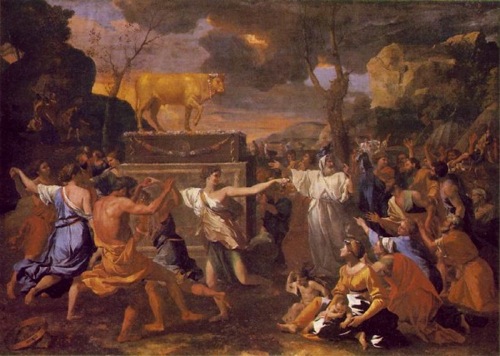
Yesterday, groggy from fasting, I read a draft of an essay for a friend. I hope I was helpful in giving some comments to him. I can go relatively easily without the food and maybe the water (from dawn to dark) but not without the coffee. His essay dealt in part with the issue of secondary causes and their role in God’s overseeing of creation — a favorite theme with advocates of theistic evolution. The following occurred to me only later, when I was marveling at the synchronicity of it all.
During the times of Enosh, mankind made a great mistake, and the wise men of that generation gave thoughtless counsel. Enosh himself was one of those who erred.
Their mistake was as follows: They said God created stars and spheres with which to control the world. He placed them on high and treated them with honor, making them servants who minister before Him. Accordingly, it is fitting to praise and glorify them and to treat them with honor. [They perceived] this to be the will of God, blessed be He, that they magnify and honor those whom He magnified and honored, just as a king desires that the servants who stand before him be honored. Indeed, doing so is an expression of honor to the king.
After conceiving of this notion, they began to construct temples to the stars and offer sacrifices to them. They would praise and glorify them with words, and prostrate themselves before them, because by doing so, they would – according to their false conception – be fulfilling the will of God.
This was the essence of the worship of false gods, and this was the rationale of those who worshiped them. They would not say that there is no other god except for this star.
As the years passed, [God’s] glorious and awesome name was forgotten by the entire population. [It was no longer part of] their speech or thought, and they no longer knew Him. Thus, all the common people, the women, and the children would know only the image of wood or stone and the temples of stone to which they were trained from their childhood to bow down and serve, and in whose name they swore.
